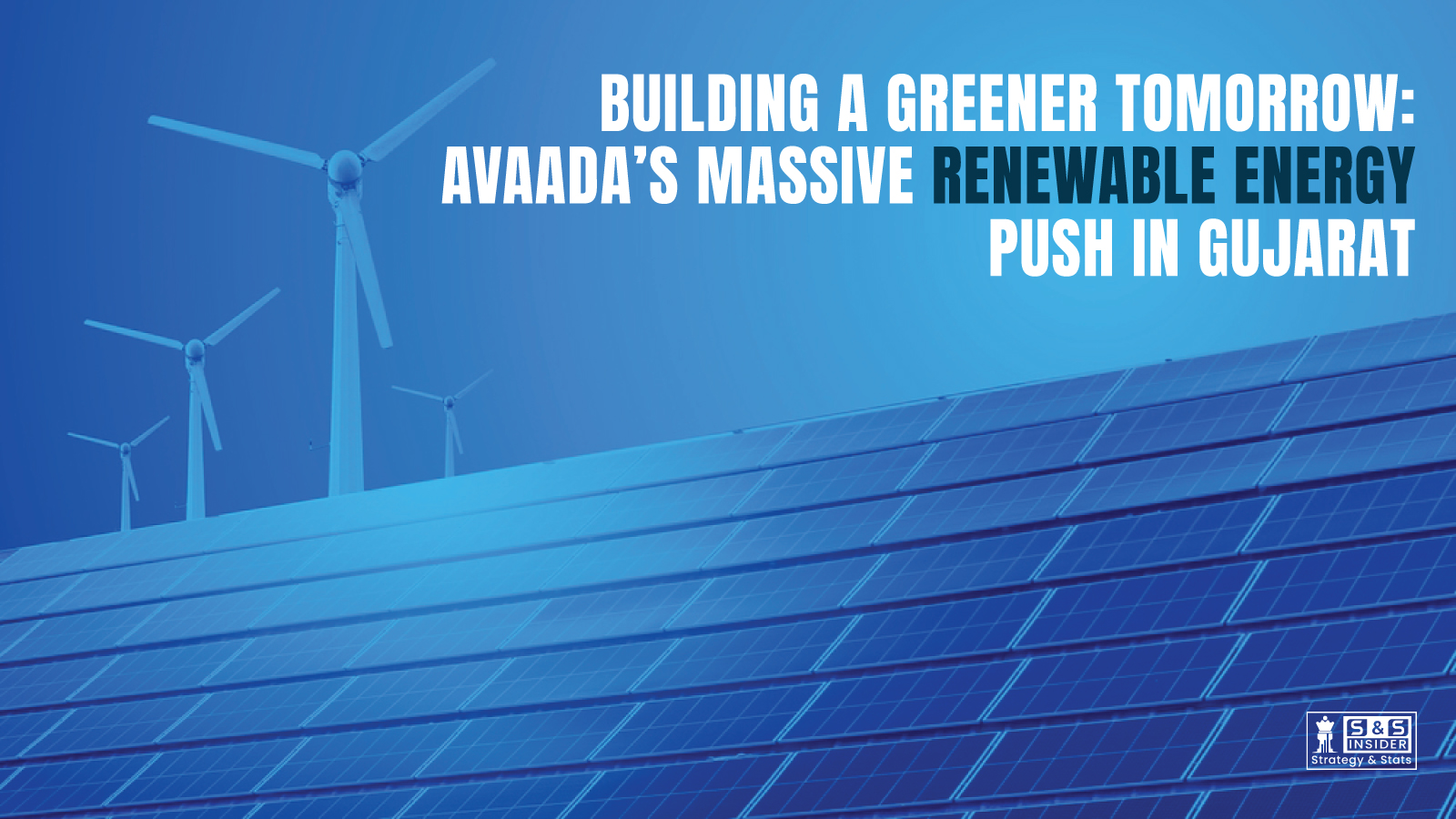
In order to build massive solar, wind, and Battery Energy Storage System (BESS) facilities in Gujarat, India, Avaada Group, one of the country's top renewable energy corporations, plans to invest a historic ₹36,000 crore ($4,000). This bold action demonstrates the company's dedication to promoting sustainable growth and aiding India's transition to renewable energy. The declaration represents a major turning point for Gujarat's renewable energy sector as well as the country's larger objective of reaching net-zero emissions by 2070.
Avaada’s Vision for a Greener Future:
Vineet Mittal, an entrepreneur, formed the Avaada Group, which has continuously led India's green energy revolution. With a portfolio that includes solar, wind, and cutting-edge energy technologies, such as BESS and green hydrogen, the organization hopes to establish a comprehensive clean energy ecosystem that can support the sustainable development of the country.
The company's ₹36,000 crore investment in Gujarat is more than just a business deal, and it is part of a long-term plan to change the way energy is generated, stored, and used. Modern battery storage technologies will be combined with solar and wind power generating in Avaada's projects to provide a steady and dependable supply of renewable energy even in the absence of the sun or wind.
This development aligns perfectly with India’s ambitions under the National Green Hydrogen Mission and the push for energy independence through sustainable solutions.
Why Gujarat Is an Ideal Choice?
Gujarat's advantageous regulations, plenty of land, and advantageous coastline location, which provides exceptional wind and solar potential, have made it a national leader in renewable energy. The state government is a popular location for significant energy investments because of its proactive commitment to infrastructure development and renewable energy.
Avaada's selection of Gujarat is indicative of their faith in the state's strong legal system and prepared infrastructure. Gujarat has led the way in enacting green investment-attracting policies during the last ten years, such as incentives for energy storage and assistance for hybrid renewable projects.
Project Components and Technological Integration:
The planned ₹36,000 crore investment will be distributed across several advanced projects:
Solar Power Plants: Avaada will establish massive photovoltaic parks equipped with high-efficiency solar modules to maximize energy generation per acre.
Wind Energy Farms: Utilizing Gujarat’s strong wind corridors, new wind turbine installations will complement solar output, creating a balanced power mix that ensures better round-the-clock generation.
Battery Energy Storage Systems (BESS): These systems will address one of the biggest challenges in renewable energy, which is intermittency. By storing excess energy during peak generation and releasing it during demand spikes, BESS facilities will enhance grid stability and reliability.
The combination of solar, wind, and BESS represents the next generation of renewable infrastructure, capable of delivering consistent energy while minimizing carbon emissions.
Economic and Environmental Impact:
Gujarat is anticipated to gain significantly economically from Avaada's future initiatives. During the phases of building, operations, and maintenance, the investments will create thousands of direct and indirect jobs. The projects will also support regional economic growth by promoting local manufacturing, logistics, and related businesses.
The expanded capacity will drastically cut greenhouse gas emissions from an environmental standpoint. By replacing fossil fuel-based power and assisting the government in meeting its decarbonization goals, the integrated renewable projects seek to provide several gigawatts of clean energy to India's national grid.
Furthermore, the construction of extensive BESS facilities will improve India's capacity to incorporate variable renewable energy into the grid, which is a crucial step in reaching the country's 2030 target of 500 GW of renewable energy capacity.
Strengthening India’s Renewable Ecosystem:
This investment further demonstrates India's growing emphasis on building up its own renewable infrastructure. The need for clean alternatives is become more urgent as the country's energy consumption keeps rising. The move by Avaada to grow in Gujarat supports additional significant expenditures in grid upgrade, solar energy production, and green hydrogen.
A strong basis for India's energy transition is being established by the cooperation of public and private initiatives as well as the government's clear policy direction. In addition to helping to meet the need for electricity, Avaada's projects will establish India as a global center for the development and application of renewable energy.
Conclusion:
Avaada's ₹36,000 crore investment in Gujarati solar, wind, and BESS projects marks a significant advancement for India's sustainable energy future. It displays a strong commitment to the country's green economic agenda as well as corporate ambition. Gujarat will solidify its role as the driving force behind India's renewable revolution when these projects are completed, opening the door for future generations to enjoy cleaner, more intelligent, and more resilient energy systems.